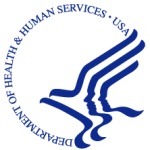- Industry: Government
- Number of terms: 33950
- Number of blossaries: 0
- Company Profile:
United States Department of Health and Human Services, Radiation Emergency Medical Management
A substance that makes particles (such as bacteria or cells) stick together to form a clump or a mass.
Industry:Health care
Glandular organ located on the chest. The breast is made up of connective tissue, fat, and breast tissue that contains the glands that can make milk. Also called mammary gland.
Industry:Health care
A type of drug that blocks the action of histamines, which can cause fever, itching, sneezing, a runny nose, and watery eyes. Antihistamines are used to prevent fevers in patients receiving blood transfusions and to treat allergies, coughs, and colds.
Industry:Health care
Removal of fluid or tissue through a needle. Also, the accidental breathing in of food or fluid into the lungs.
Industry:Health care
Cancer that forms in tissues of the breast, usually the ducts (tubes that carry milk to the nipple) and lobules (glands that make milk). It occurs in both men and women, although male breast cancer is rare.
Industry:Health care
Treatment with drugs, surgery, or radiation in order to block the production or action of a hormone. Antihormone therapy may be used in cancer treatment because certain hormones are able to stimulate the growth of some types of tumors.
Industry:Health care
In medicine, describes a tumor or disease that forms, grows, or spreads quickly. It may also describe treatment that is more severe or intense than usual.
Industry:Health care
A drug that reduces pain, fever, inflammation, and blood clotting. Aspirin belongs to the family of drugs called nonsteroidal anti-inflammatory agents. It is also being studied in cancer prevention.
Industry:Health care
There are 2 types of breast carcinoma in situ: ductal carcinoma in situ (DCIS) and lobular carcinoma in situ (LCIS). DCIS is a noninvasive condition in which abnormal cells are found in the lining of a breast duct (a tube that carries milk to the nipple). The abnormal cells have not spread outside the duct to other tissues in the breast. In some cases, DCIS may become invasive cancer and spread to other tissues, although it is not known how to predict which lesions will become invasive cancer. LCIS is a condition in which abnormal cells are found in the lobules (small sections of tissue involved with making milk) of the breast. This condition seldom becomes invasive cancer; however, having LCIS in one breast increases the risk of developing breast cancer in either breast. Also called stage 0 breast carcinoma in situ.
Industry:Health care
A type of lymphoma that grows and spreads quickly and has severe symptoms. Also called high-grade lymphoma and intermediate-grade lymphoma.
Industry:Health care
